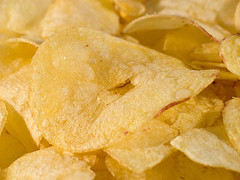Urban Myths
 It is not often that I seek reading material in Guillermo's office as most of his books have a neuroscience slant to them. However, he was reading out loud a paragraph from one of his collection and I found myself listening with interest.
It is not often that I seek reading material in Guillermo's office as most of his books have a neuroscience slant to them. However, he was reading out loud a paragraph from one of his collection and I found myself listening with interest.The book "Early Intelligence - how the brain and mind develop in the first five years of life" is written by Lisa Eliot, a neuroscientist; a Harvard graduate who received her Ph.D from Colombia University. Dr Eliot is an assistant professor at the Department of Neuroscience at the Chicago Medical School and a lecturer at the Erikson Institute, the graduate school of child development in Chicago.
Her book begins with the question "Nature or Nurture?" and it goes on to explain how children are raised in their early years (counting from pregnancy) has a profound impact on their future lives.
She says that we are the product of a "delicate dance between genes and environment". While genes programme the sequence of neural development, its quality is shaped at every turn by our experience. Thus, dispelling the common perception that it is a matter of heredity when it comes to a child's intelligence; intelligence is largely the result of a developmental process.
I am still going through the first quarter of the book which deals with the pregnancy phase of a child's life. The author gives details and cites scientific research findings when she dissects medical advice given to pregnant women. Since her target audience is not necessarily pregnant women, I have found her writing a lot more objective and interesting than an easy to read book written typically for soon-to-be-mothers.
For example, on the subject of alcohol consumption, she rightly says that heavy drinking can cause fetal alcohol syndrome and it also increases the chances of miscarriage and other birth complications. However, she actually gives hard facts and numbers: it happens to 30%-50% of mothers and babies whereby the mothers consume 6 drinks per day during their entire pregnancy.
This neuroscientist says the effects of modest alcohol consumption are more controversial; there is a conspicuous divergence between studies conducted in the United States which tend to find significant effects of modest consumption and those conducted in Europe and Australia which tend to find no effects at all.
I'm definitely not encouraging pregnancy women to consume alcohol. On the other hand, I don't know about you but after knowing how the FDA approved all those dubious artificial sweeteners or how part of the U.S. media is helping the U.S. government in creating doubts about global warming, I am sceptical of research findings coming from a country where much research is done but very often with a commercial or political agenda obtaining results which eerily favour the interest groups providing the funds
Dr. Eliot, in unsubtle words, confirms my scepticism by saying "It is from a public health standpoint, rather than from knowledge of individual risk, that abstinence is now advised during pregnancy."
And it is also from this unlikely source that I've learnt more about monosodium glutamate (MSG) which most people associate with Asian food and restaurants.
MSG is composed of a common amino acid, glutamate, together with one molecule of sodium. Glutamate is a potent favour enhancer not only found in some Asian restaurants (these days, usually in the low-quality and cheap ones) but it is also present in many prepared convenience foods, especially soups, salad dressings, sauces, marinades, luncheon meats, frozen meals, flavoured chips (papas fritas) and crackers (galletitas saladas), and flavoured mixes for rice and pasta.
The author goes as far to say that in fact, the average American (in the US) probably consumes much more glutamate from eating at home than from the occasional Chinese dinner out.
In addition to MSG, glutamate is often added to food in form of "hydrolyzed vegetable protein" which contains from 10-30% glutamate and can be referred to on food labels, confusingly, as "natural" flavouring.
It is unlikely that MSG consumption during pregnancy would damage the foetus's brain as glutamate does not cross the placenta very well. However, the effect of MSG is very different on young children.
Concern about glutamate arises from the fact that high doses are known to kill brain cells, and younger children are especially susceptible to its toxic effects. Glutamate is the most prevalent excitatory neurotransmitter in the brain; when neurons are overexcited by glutamate, in some cases, they can be damaged or even killed - much as an electrical appliance can be damaged if too much current passes through.
I hope this starts people thinking about the deceivingly innocent but toxic cocktail of papas fritas (potato crisps) and diet coke they consume or worse, they feed their toddlers.


<< Home